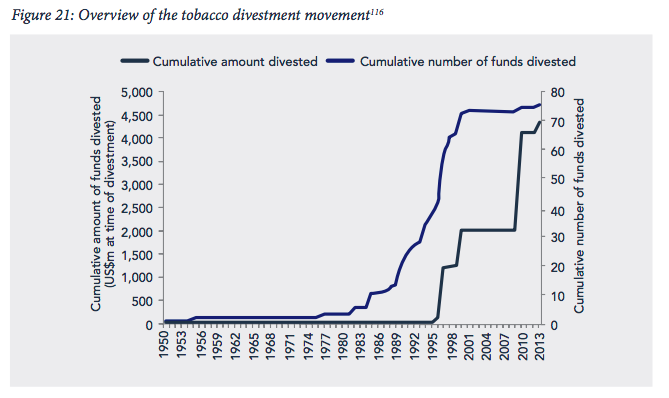Divestment is the opposite of an investment. It means getting rid of stocks, bonds or investment funds that are unethical or morally ambiguous. Fossil fuel investments are a risk for investors and the planet – that’s why we’re calling on institutions to divest from these companies.
In recent history, there have been a number of successful divestment campaigns. The largest and most impactful one targeted South African Apartheid, which helped break the back of the Apartheid government.
The fossil fuel divestment campaign has also been hugely successful – the fastest growing divestment movement of all time! Globally, over $3.4 trillion of assets across over 500 institutions has already been divested!
